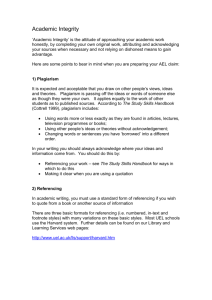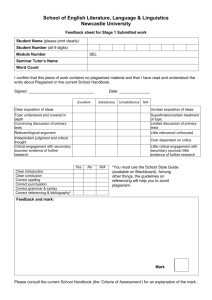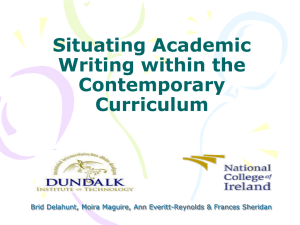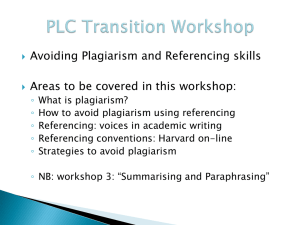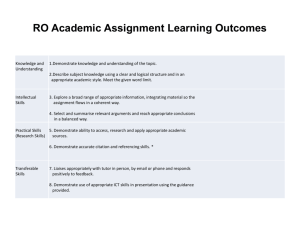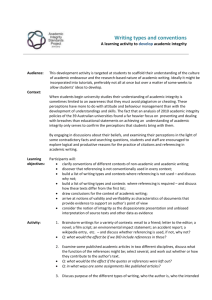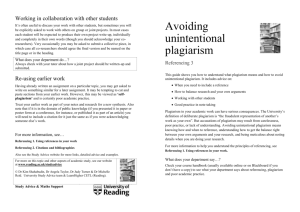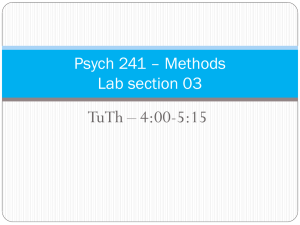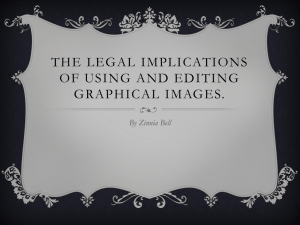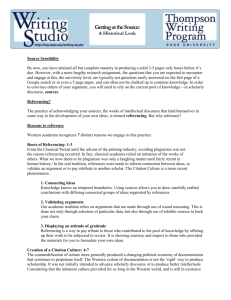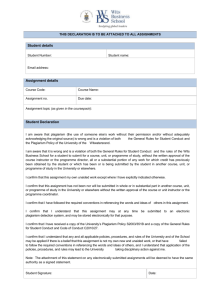Teknik Penulisan - Heru Susetyo Nuswanto
advertisement
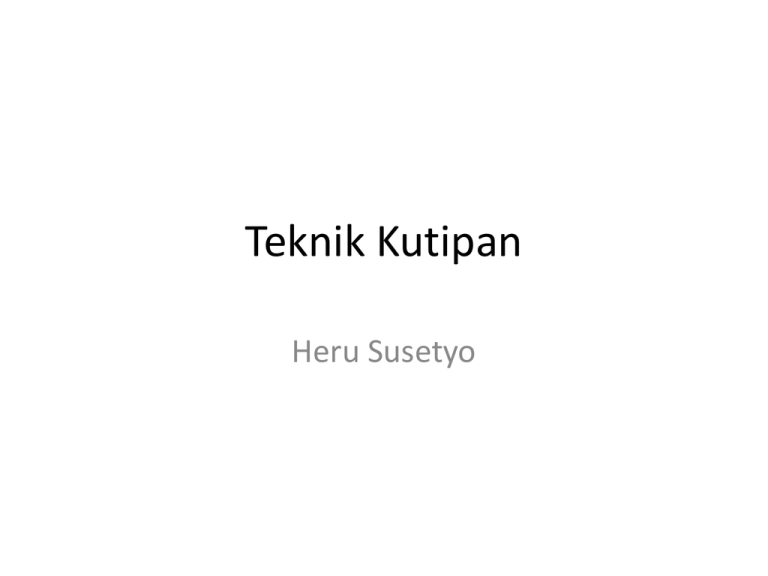
Teknik Kutipan Heru Susetyo • Keputusan Rektor UI No. 628/ 2008 tentang Pedoman Teknis Penulisan Tugas Akhir Mahasiswa Universitas Indonesia Model APA • • • • • • • • • • • • • What is referencing? When you write an assignment at university, you are required to refer to the work of other authors. Each time you do so, it is necessary to identify their work by making reference to it— both in the text of your assignment and in a list at the end of your assignment. This practice of acknowledging authors is known as referencing. References must be provided whenever you use someone else’s opinions, theories, data or organisation of material. You need to reference information from books, articles, videos, computers, other print or electronic sources, and personal communications. A reference is required if you: • quote (use someone else’s exact words) • copy (use figures, tables or structure) • paraphrase (convert someone else’s ideas into your own words) • summarise (use a brief account of someone else’s ideas). • Why should you reference? • References enhance your writing and assist your reader by: • • showing the breadth of your research • • strengthening your academic argument • • showing the reader the source of your information • • allowing the reader to consult your sources independently • • allowing the reader to verify your data. • Should you reference public domain information? • Public domain information is information that is so widely known that it is considered everybody • would be aware of its source. The general public use public domain information freely. Where • authors or sources are so widely known, specific citation may not be required. Check with your • lecturer on this issue. • For example: • As Shakespeare observed, ‘All the world’s a stage …’ • • • • • • • • • • • • • What is plagiarism and how can you avoid it? Plagiarism is the intentional use of someone else’s ideas, words or concepts in your assignment work. It is considered serious misconduct at University and should be avoided at all times. Central Queensland University (CQU) has a policy on plagiarism and you are strongly encouraged to familiarise yourself with it. The following URL will lead you to the plagiarism policy: http://policy.cqu.edu.au/Policy/policy.jsp?policyid=198 Committing plagiarism can carry very serious penalties for students, including expulsion from a university. (Note: Expulsion, for some international students, may mean having to return to their own country because this forfeits their student visa.) Regrettably, students have been known to commit offences of plagiarism by not understanding what acceptable paraphrasing, summarising or quoting techniques are. This is discussed later in this guide. The best way to avoid being accused of plagiarism is to acknowledge the resources upon which you have based your ideas. • • • • • • • • • • • • • Which referencing system should you use? There are a number of different referencing systems used in academic writing. CQU acknowledges: • author-date systems commonly known as Harvard and APA (American Psychological Association) • footnoting or endnoting systems commonly used in History and Law. It is important that you use the referencing system required by your lecturer for an assignment and maintain consistency in using that system. This guide explains the Harvard system of author-date referencing. The information it contains is based on: Commonwealth of Australia 2002, Style manual for authors, editors and printers, 6th edn, rev. by Snooks & Co., John Wiley & Sons Australia, Brisbane. Copyright: Commonwealth of Australia reproduced with permission.
